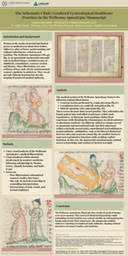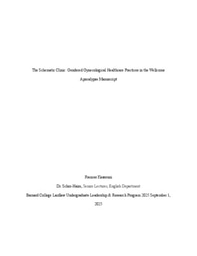Communicating the Importance of Your Research
A few days ago, I flew back to my hometown of Sacramento to spend time with family before the new semester begins. The break has been a welcome pause from long hours on campus and an opportunity to reflect on my six-week research period with Laidlaw. Between family gatherings, I’ve found myself in cafés, piecing together months of reading and note-taking into a cohesive draft.
Being home has also pushed me out of my academic bubble. Without the shared, often inaccessible, language of peers and faculty, I’ve had to practice condensing my research into clear, accessible ideas (in other words, learning my elevator pitch).
I’m fortunate to have a network on campus that encourages exploration of humanities research, even when it’s perceived as “out of the box” or less obviously practical than quantitative fields. When friends or family at home raise those doubts, I take it as an opportunity to refine my pitch. I might follow up with questions like: Have you visited an OB-GYN recently? Have you seen fetal images at anti-abortion protests? Do you own any medical literature about your reproductive system?
Although my project focuses on the medieval era, I’ve come to see how vital it is to connect this history to contemporary issues. These questions open the door to conversations about how gynecological care is structured, how visual culture shapes reproductive politics, and how people understand their own bodies, whether through texts, images, or oral tradition.
This process has reminded me that research doesn’t live in isolation. Its impact grows when we learn to share it beyond the library, connecting the past to the present in ways that resonate with the people around us.


Please sign in
If you are a registered user on Laidlaw Scholars Network, please sign in